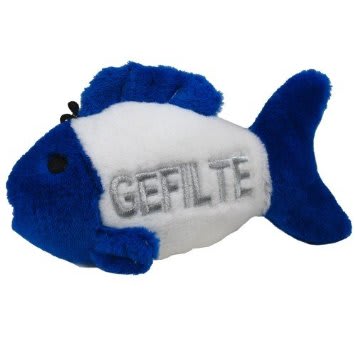The Kitzur Shulchan Arukh writes that “it is a mitzva to eat fish at each Shabbat meal” (KSA 72:7, as found in Magen Avraham OC 242:1 citing Tikkunei Shabbat).
There is no actual requirement to eat fish on Shabbat. Rather, fish is repeatedly cited by our rabbis as a food which makes the Shabbat a delight.
Even so, many original and profound ideas have been propounded which draw a more profound connection between fish and Shabbat. Here is an approach which incorporates some of these ideas:
In another column, we gave one explanation why fish do not require ritual slaughter. The basic reason is that the slaughter of the animal, cutting it off suddenly from the air of this world, is symbolic of the need for the Jew to be willing to completely slaughter his bestial nature, to “choke off” his subordination to material desires. This is a prerequisite for the next stage, the elevation of the material world to holiness, a process which is effected by consuming kosher meat.
Fish, conversely, are likened by the Zohar to the completely righteous, the Roshei Yeshiva. These individuals don’t need to separate themselves from their material environment because they are in a completely different world, the sea of Torah. Just as fish occupy them- selves with material pursuits in the same way as beasts, but in a completely altered environment, so the Roshei Yeshiva occupy themselves with these in the way of other people, but their eating and drinking are soaked in the concepts and the holiness of the Torah (See TT Shemini 5762).
However, on Shabbat all Jews obtain a neshama yeteira, an “extra soul”, which enables them to enjoy material pursuits in holiness, without being drawn into coarse bestiality. This is why bodily delights are a special mitzva on Shabbat. In other words, on Shabbat all Jews are able to attain the special level of the “Roshei Yeshiva” who are not spiritually compromised by their material endeavors. This special level is symbolized by fish, which do not require slaughter to separate them from the world; it is enough to gather them up from the water.
This idea is closely bound up with another common motif of fish. Fish are considered to be free of the “evil eye”. (See Rashi on Bereshit 48:16.) The concept of the “evil eye” in brief is that we should try not to flaunt our good fortune because this will attract negative elements. This concept is basic and intuitive on the material level; a person who shows off his wealth, and particularly one who shows off his generosity, is likely to attract many unscrupulous people who will try to benefit from his largesse.
This consideration is very important in our environment, in which good and bad, light and darkness, are intermixed. Our efforts to do and display good are always in danger of nourishing the forces of evil; the remedy for this problem is modesty.
But the sea represents a world where this admixture is not present, an environment of pure loving kindness. In such an environment there is no evil eye, and there is no reason to hide or limit good fortune.
Rabbi Asher Meir is the author of the book Meaning in Mitzvot, distributed by Feldheim. The book provides insights into the inner meaning of our daily practices, following the order of the 221 chapters of the Kitzur Shulchan Arukh.
The words of this author reflect his/her own opinions and do not necessarily represent the official position of the Orthodox Union.

